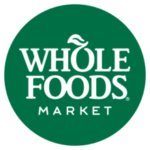The Canadian Food Inspection Agency (CFIA) announced that Sofina Foods Inc. is recalling Crisp & Delicious brand Chicken Breast Nuggets – Uncooked Seasoned Breaded Chicken Cutlettes from the marketplace due to possible Salmonella contamination. This recall was triggered by CFIA during its investigation into a foodborne illness outbreak. The product was distributed in British Columbia, Manitoba, Ontario, and Quebec, and may have been distributed in other provinces or territories. A Canadian government public health notice stated that currently, there are 54 cases of illness in ten provinces linked to this outbreak connected to the chicken products: British Columbia (4), Alberta (11), Saskatchewan (1), Manitoba (3), Ontario (20), Quebec (4), New Brunswick (2), Nova Scotia (5), Prince Edward Island (3) and Newfoundland and Labrador (1). None of the ill individuals have been hospitalized. No deaths have been reported. Regardless of salmonella being destroyed when proper cooking instructions are followed, the company took this precautionary measure,” the company said in announcing the recall. @ http://inspection.gc.ca/about-the-cfia/newsroom/food-recall-warnings/complete-listing/2019-01-25/eng/1548461716196/1548461718217
ruth
Sofina Foods Inc. is recalling Crisp & Delicious brand Chicken Breast Nuggets from the marketplace due to possible Salmonella contamination.
ruth
The FDA announced that in response to the recall of baby spinach by Satur Farms, Whole Foods Market is voluntarily recalling various prepared foods items in eight states containing baby spinach because of potential contamination of Salmonella. The affected products, including Panini, stuffed salmon, salads, pizza, sandwiches, and wraps, were sold at stores in Connecticut, Florida, Maine, Massachusetts, New Hampshire, New Jersey, New York, and Rhode Island. No illnesses have been reported at this time. Consumers who purchased items containing baby spinach from the salad bars or hot bars at Whole Foods Market locations in these states should discard items purchased through January 23, 2019. @ https://www.fda.gov/Safety/Recalls/ucm629788.htm?utm_campaign=Satur%20Farms%E2%80%99%20Recall%20of%20Baby%20Spinach%20Affects%20Prepared%20Food%20Items&utm_medium=email&utm_source=Eloqua
In response to a recall by Satur Farms, Whole Foods Market is voluntarily recalling various prepared foods items in eight states containing baby spinach because of a potential contamination of Salmonella.
ruth
Yonkers, NY-based Jac. Vandenberg Inc. has recalled 1,727 cartons of Fresh Peaches, 1,207 cartons of Fresh Nectarines and 365 cartons of Fresh Plums because they may be contaminated with Listeria monocytogenes. The fresh fruits were distributed in Alabama, California, Georgia, Illinois, Kentucky, Maine, Massachusetts, Michigan, Mississippi, New Jersey, New York, North Carolina, Ohio, Pennsylvania, South Carolina, Tennessee, and West Virginia and Virginia through small retail establishments and retail stores. They include major retailers, such as Costco, Walmart, Market Basket, ALDI, Fairway Market, and Hannaford. The peaches and nectarines are sold as bulk retail produce showing the country of origin of Chile. No illnesses have been reported to date in connection with this problem to date. The recall was the result of a routine sampling program by the packing house which revealed that the finished products contained the bacteria. The company has ceased the distribution of the product as FDA and the company continues their investigation as to what caused the problem.
https://www.fda.gov/Safety/Recalls/ucm629797.htm
Jac. Vandenberg, Inc. of Yonkers, New York is recalling 1,727 cartons of Fresh Peaches, 1,207 cartons of Fresh Nectarines and 365 cartons of Fresh Plums because they have the potential to be contaminated with Listeria monocytogenes, an organism which can cause serious and sometimes fatal infections in young children, frail or elderly people, and others with weakened immune systems.
ruth
The CDC announced that the New York State Department of Health and Pennsylvania Department of Health is investigating Brucella RB51 exposures that may be connected to consuming raw (unpasteurized) milk from Miller’s Biodiversity Farm in Quarryville, Pennsylvania. This investigation is associated with the third known case of brucellosis from Brucella RB51 due to raw milk acquired in the U.S., since August 2017. This strain of Brucella is Rifampin/Penicillin resistant. A New York resident, who drank raw milk purchased from Miller’s Biodiversity Farm in Quarryville, Pennsylvania, was diagnosed with brucellosis in November 2018. Milk samples from the dairy tested positive for Brucella strain RB51. People who consumed raw milk or raw milk products from this dairy since January 2016 may have been exposed. In late December 2018, the Pennsylvania Department of Health quarantined that farm’s raw milk and raw milk products for possible Brucella contamination. @ https://emergency.cdc.gov/han/han00417.asp
Health Alert Network (HAN). Provided by the Centers for Disease Control and Prevention (CDC).




